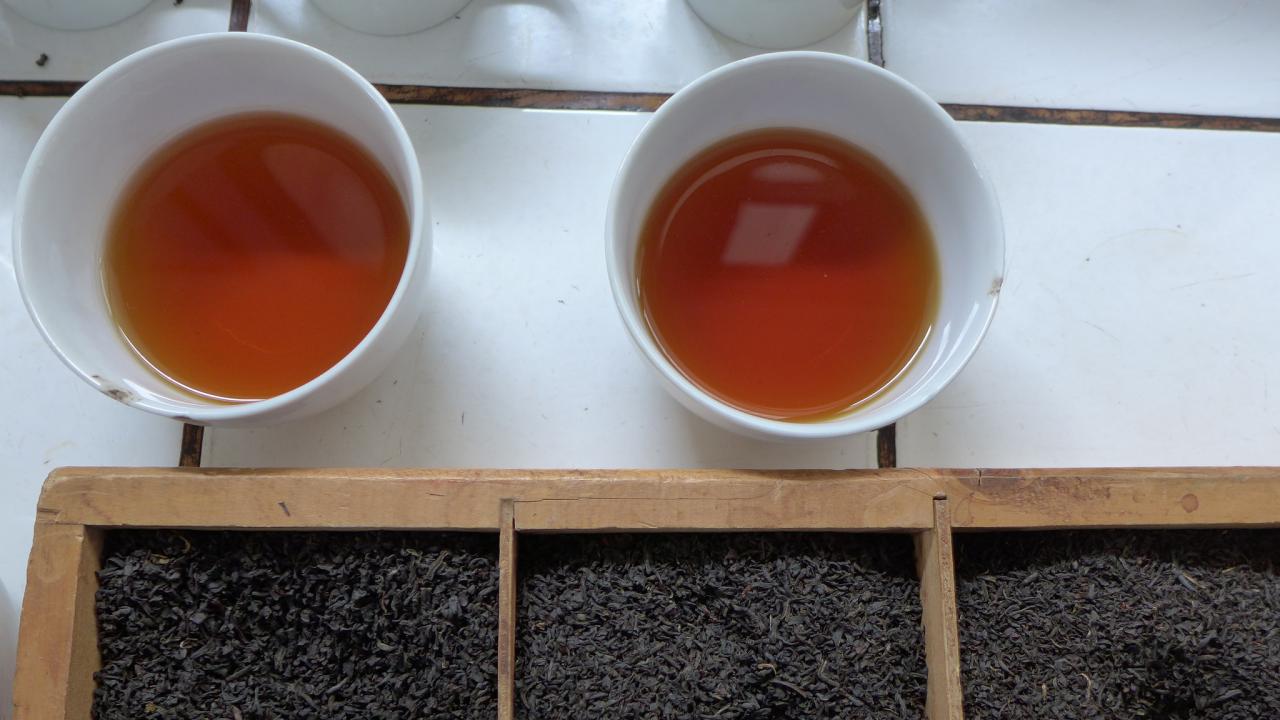
From traffic control to monitoring air pollution levels, the Internet of Things, or IoT, (a network of small devices that are connected and can 'talk' to each other and the Internet) has a myriad of applications. Participants of a recent ICTP activity held in Rwanda have shown that IoT could make all the difference between a good and a great cup of tea. When asked to come up with practical applications for IoT, participants of the 1st East Africa Workshop on the Internet of Things, held in Kigali from 25 to 29 May, devised a clever, low-cost IoT-based solution to monitor humidity levels of plucked tea leaves.
Tea is one of Rwanda's major exports, and its quality (and selling price) is largely determined by humidity and moisture levels. "The methods currently in use to check and record these parameters are manual, time-consuming and prone to error," says Marco Zennaro, research officer at ICTP's Telecommunications/ICT for Development Laboratory (T/ICT4D) and one of the activity directors. "The participants developed a small sensor with a display that recorded the tea humidity levels every 15 seconds and then transmitted the information via the Internet [from the tea factory] to the offices in Kigali. The idea of this whole exercise was to show that IoT can have practical, low-cost applications," says Zennaro.
Mike Hughes, an advisor to the Government of Rwanda for science, technology and innovation, and also an activity director of the ICTP workshop, says that the Rwandan government is focussed on the development of ICT in Rwanda. "IoT is a relatively new concept and as Rwanda’s ICT capabilities develop, measures can be put in place to take advantage of the potential offered by IoT," he says. According to Hughes, for a rapidly developing country such as Rwanda, IoT can be applied to bolster the development of various key sectors, for example, meeting the challenges of urbanization (such as traffic congestion), enhancing environmental monitoring, improving food processing (as shown in the case of tea production), and boosting education in rural areas through better information management systems. "The ICTP workshop on IoT was very 'hands on' with many practical sessions to help reinforce people’s understanding of the crucial concepts related to this subject," he says.
Zennaro says that the workshop, the first of its kind to be held in East Africa, is the first step toward building up a strong network of researchers working on IoT in the region. The Minister of Education for Rwanda, Professor Silas Lwakabamba, released a statement which confirmed the importance of such workshops that introduce the latest technologies to the researchers in the region. “I am delighted at the ongoing development of a close partnership with the ICTP, and the IoT workshop served as one of a series of workshops that have been delivered in Rwanda through the partnership with the ICTP. The IoT promises to deliver great benefits to Rwanda and the region and I look forward to working closely with ICTP in taking advantage of these benefits,” he said. Hughes adds that the Rwandan government is looking into proposals aimed at educational aspects of introducing IoT in universities and technical colleges and also to start developing projects around the use of IoT within various sectors in Rwanda.
Pictures from the activity can be viewed on online on Zennaro's Flickr account.
















